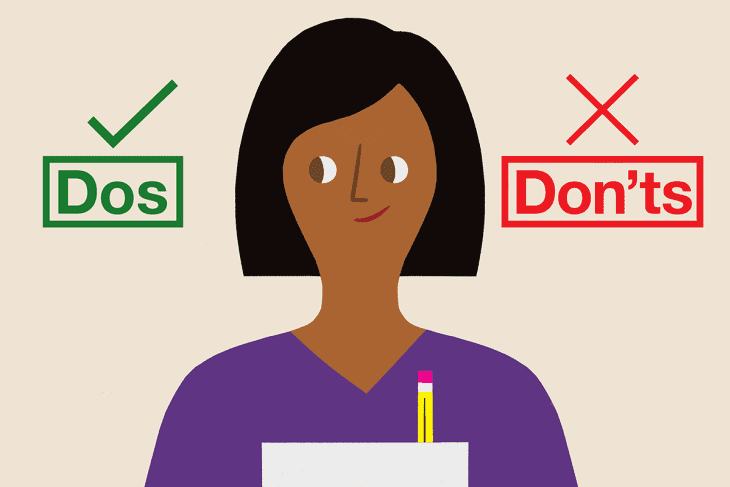5 Mistakes to Avoid During Whole30
For 30 days this month we’re exploring Whole30, the 30-day reset and refocus on whole foods. Whole30 isn’t a diet or a judgment of foods as “good and bad.” It’s actually a short-term reset that has helped many of our readers cook more and figure out the foods that make them feel their best. Read more about our coverage here.
Between looking at labels, stocking your pantry, and trying to figure out what you can eat at a restaurant, following Whole30 is definitely not easy. Even if you’re doing your best to stick to the program, there are a few common mistakes that first-timers and Whole30 veterans alike tend to make, which makes things unnecessarily hard.
Before you embark on your 30-day quest without dairy, added sugar, alcohol, grains, legumes, carrageenan, MSG, and sulfites, set yourself up for success by learning about the pitfalls. Here are a few common mistakes to avoid to make your life on Whole30 a whole lot easier (get it?).
1. Doing it by yourself.
Whether you find in-person support in the form of a significant other, family member, friend, or coworker, or you decide to join the Whole30 online community, it’s important to have social support from people who understand what you’re doing and why.
Make sure you find people you can both celebrate triumphs with and seek out for support when you feel you might veer off-path. Not only are social support systems like this essential when you need them, but it also feels really good to be able to cheer on others and watch them succeed.
2. Making things harder than they need to be.
Maybe the month when you’re traveling internationally on vacation or when you have a wedding every weekend isn’t the best time to do Whole30 for the first time. Giving up the foods you love for 30 days is hard enough, so make sure you take it easy on yourself and try to avoid situations with lots of temptation if you can.
Set yourself up for success — not unnecessary stress — especially if this is your first time doing it.
3. Recreating junk food.
This is already in the Whole30 rules, but it’s an important one to reiterate. If you’re recreating desserts every night, even if it’s with compliant ingredients, you’re not really challenging yourself to change your routine from a psychological and emotional standpoint. For 30 days, try treating yourself to things that aren’t food or drinks.
4. Restricting what you eat (even more).
While you are indeed cutting certain foods out of your diet, don’t think of Whole30 as purely an elimination diet — think of these 30 days as an opportunity to cook dishes you’ve never tried before and experiment with new and unfamiliar ingredients.
The easiest way to get excited about the meals you’re eating on Whole30 is by meal planning. It takes some effort up front, but it’s worth it. You don’t want to be stuck eating plain eggs every day during the program, right? Figure out what you like, do some research, switch things up, and put a plan in place.
Get a recipe: 21 Delicious Whole30-Friendly Recipes
5. Having unreasonable expectations.
Yes, some people report losing a few pounds, having clearer skin, and experiencing higher energy, among other changes after Whole30, but focus on your own body rather than having expectations based on someone else’s results. Think of Whole30 as more of an experiment; you’re doing it to figure out which foods work for you and which ones don’t. Keep the big picture — feeling good — in mind.
30 Days of Whole30: We’re kicking 2017 off with 30 days of Whole30. Why Whole30? It’s not a permanent diet; it’s not a prescription for eating. It’s just 30 days of eating whole foods and exploring a more purposeful, mindful approach to food. Read more here on what Whole30 is and how to follow along.
